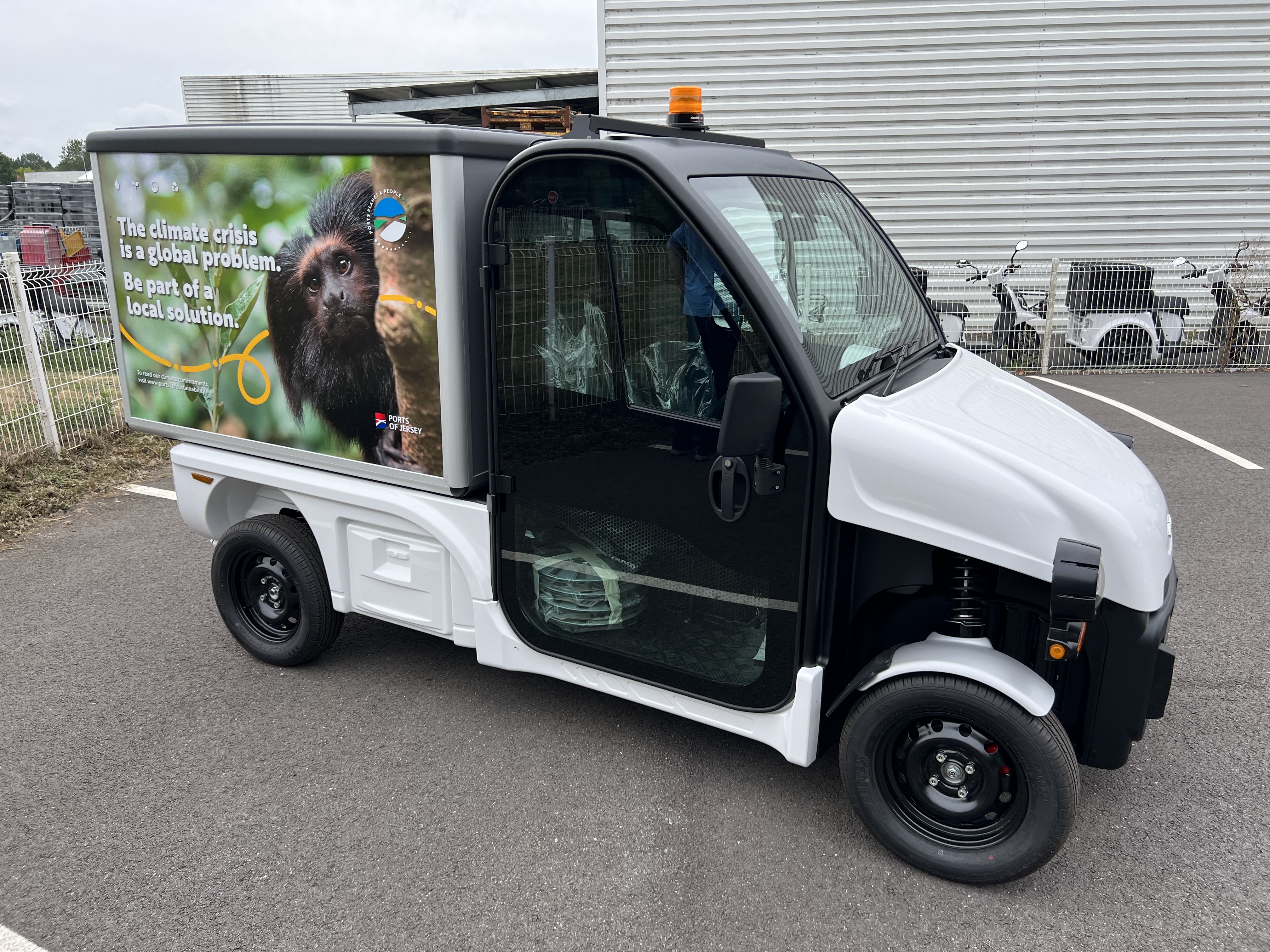
Case studies
Ports of Jersey, Jersey, Ligier Pulse 4

In the bid to reduce carbon emissions, many companies are starting to embrace environmentally friendly practices, and Ports of Jersey (POJ) is not an exception. Located on the small island of Jersey, POJ has recently added four fully electric utility vehicles to their fleet of operational vans.
These vehicles are manufactured by the French company Ligier and imported by their partner Compact Electric Vehicles. With the ports industry traditionally high-emission, this move marks an extremely positive milestone in achieving the company's sustainable goal. The vehicles will be deployed to Marine Leisure, Elizabeth Terminal, and Airport Departures, whilst also being used for transporting tools, traffic cones and other equipment.

Sophie Roffe, the Head of Sustainability at Ports of Jersey, explains that the decision to invest in electric vehicles came as part of their sustainable vehicle strategy. POJ aims to achieve a "net zero airport operation by 2030," and this includes adopting low-carbon fuels and employing more efficient driving practices. The four new electric utility vehicles are phase one of this project, and they will play a significant role in this company going green.
With the vehicles looking so different from anything else on the island, they are sure to stand out. With prominent LED lights that stare at you like eyes and a sleek, modular frame, the vehicles are designed to look futuristic. Their look was one of the main drivers for the vehicles, POJ wants heads to turn and for people to know they are electric. Compact Electric Vehicles helped them achieve this by wrapping the vehicles bespokely.
The new utility vehicles are more than 90% recyclable making them a great choice for POJ as it aligns perfectly with the company's commitment to sustainability. Moreover, these vehicles can transport essential equipment for the airport and harbour operational teams which not only promotes sustainable practices but also improves their operations. Alongside this, the vehicles can go for 70 miles on one charge. With the island only 5 miles long and 9 miles wide, they won’t have to charge them very often!
With an electric emergency response vehicle already in action, the island has an appetite for electric vehicles so it will be exciting to see how they continue to expand the fleets.
Ports of Jersey's decision to switch to electric vehicles is not just an environmental move, it also makes good business sense. These vehicles are much cheaper to operate and require far less maintenance compared to traditional petrol vans. The cost savings and improved efficiency of operations make it a smart investment in the long run.
Ports of Jersey's new electric utility vehicles are a welcome addition to the small island. It’s an exciting advancement and one that we hope will inspire other companies in the industry.
